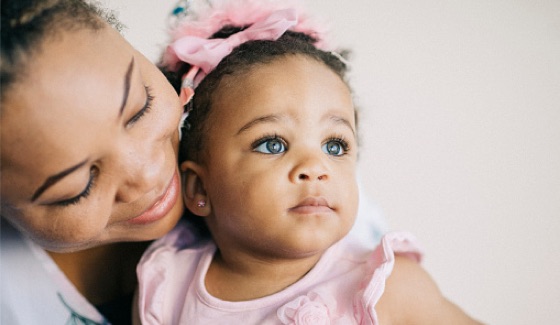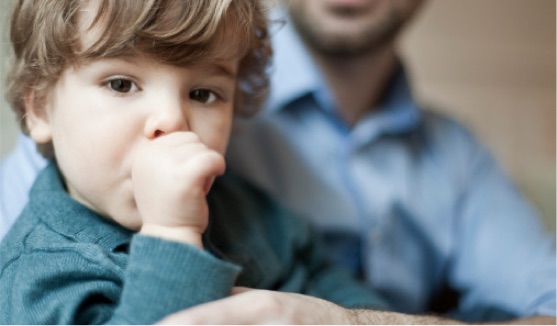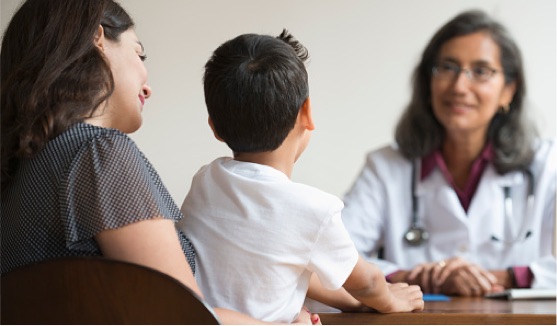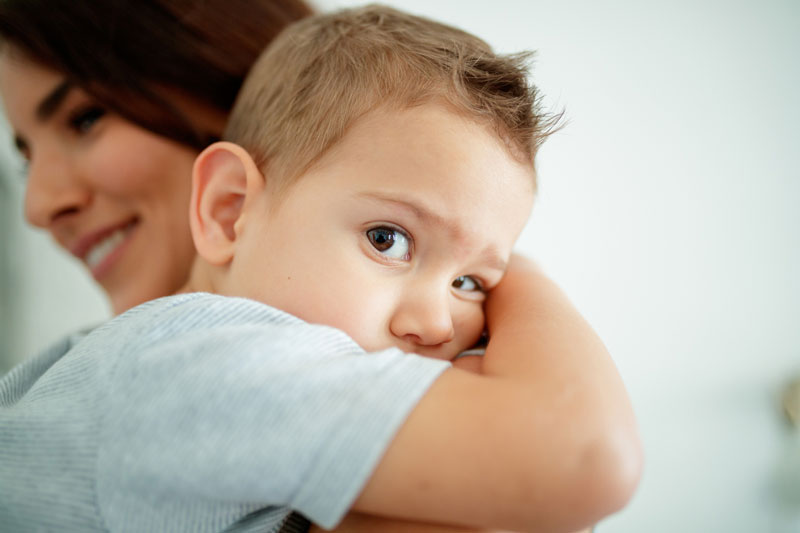 Coping With a Neuroblastoma Diagnosis
Coping With a Neuroblastoma DiagnosisCoping With a Neuroblastoma Diagnosis
Starting your journey as a neuroblastoma caregiver
Learning your child has been diagnosed with neuroblastoma can be devastating. It is okay to be concerned for your child and to have questions about treatment. As you start your journey as a caregiver, remember that you are not alone.
In this section, you will find information to help you cope with the diagnosis and prepare for the neuroblastoma journey.
 Your child’s diagnosis and your feelings
Your child’s diagnosis and your feelingsYour child’s diagnosis and your feelings
No parent or caregiver is ever prepared for the words, “Your child has cancer.” This news can cause feelings of fear, anger, sadness, or guilt. Managing your emotions can be a challenge during the first few weeks–this is normal.
Learning unfamiliar medical terms and making treatment decisions while also caring for your child and family may feel overwhelming. Be patient with yourself and your family as you adapt. Here you will find tips to help you and your family cope after diagnosis.
Coping with a neuroblastoma diagnosis
Learning how to cope with stress and build a support system can give you the strength and courage you need for the journey ahead. Some coping techniques that may help are:
Helping your child through the diagnosis
Regardless of your child’s age at diagnosis, it is important to provide them with a sense of security and reassurance. Most children will feel less worried and scared if they are included in their care plan, and may benefit from receiving honest, age-appropriate information. Your child’s healthcare team can help with this.
Select the age of your child to learn ways to provide comfort.
Infants and children under 2 years of age can be comforted by the sound of your voice, your touch, and by having familiar items like a favorite blanket nearby. Keeping the routine they had at home may help them feel more secure. Fear of strangers, like the healthcare team at first, is common.
Helping siblings cope with the diagnosis
Siblings experience their own emotional responses. Continuing to make room for their involvement and communicating with them helps them feel like a valued member of the family.
Older siblings may feel changes happening around them at home. This can make them sad or anxious knowing their brother or sister is sick. They may get upset or act out more often because of the uncertainty surrounding them. You can help them by:
- Reminding them that they are loved and valued by you
- Spending alone time with them while doing something they enjoy
- Reminding them that they are not to blame. Nothing they did, thought, or said caused their brother or sister to get cancer
- Talking with your child’s healthcare team about providing education and support services for siblings
 Hello Lovely
Hello LovelyTo help your child or their siblings cope with diagnosis or treatment, they may enjoy getting to know Skivolo. Skivolo is a young red panda with high-risk neuroblastoma. Go to Skivolo’s Kid Zone, where you can find activities and storybooks to educate your child and their siblings on neuroblastoma. You can also ask your care team to help you order different Skivolo resources.

Talking to other family members or friends
A new diagnosis of neuroblastoma may be overwhelming, but you are not alone. You probably have many family members and friends who are willing to help. In the early days, they may have a lot of questions. Discussing your child’s neuroblastoma with your loved ones may be difficult in the beginning, but you can set boundaries and decide which details to share. Sometimes it is helpful to designate someone you trust to be your “spokesperson” to update family and friends so you can focus your energy on other important things.
As you begin to settle in with your emotions, you may start thinking ahead to treatment for your child.
Coping with a Neuroblastoma Diagnosis
Learn from a clinical social worker about helping your child and family cope with the diagnosis.
Resources
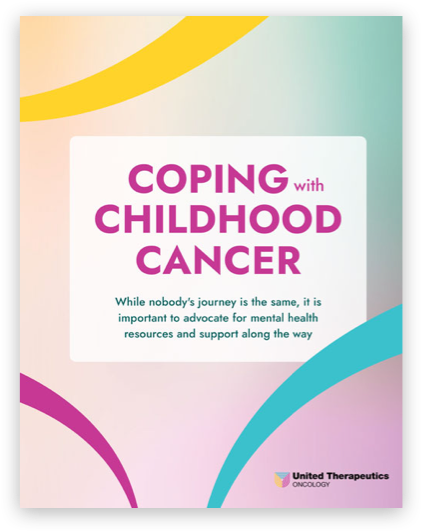
Coping with Childhood Cancer Guide
A step-by-step guide to help set a good foundation for you and your child's mental health throughout your journey. This guide takes you from initial diagnosis to after treatment, with considerations to help you cope with childhood cancer and advocate for resources that may be available to you. Use this guide as you navigate the childhood cancer journey.
Download Coping with Childhood Cancer Guide